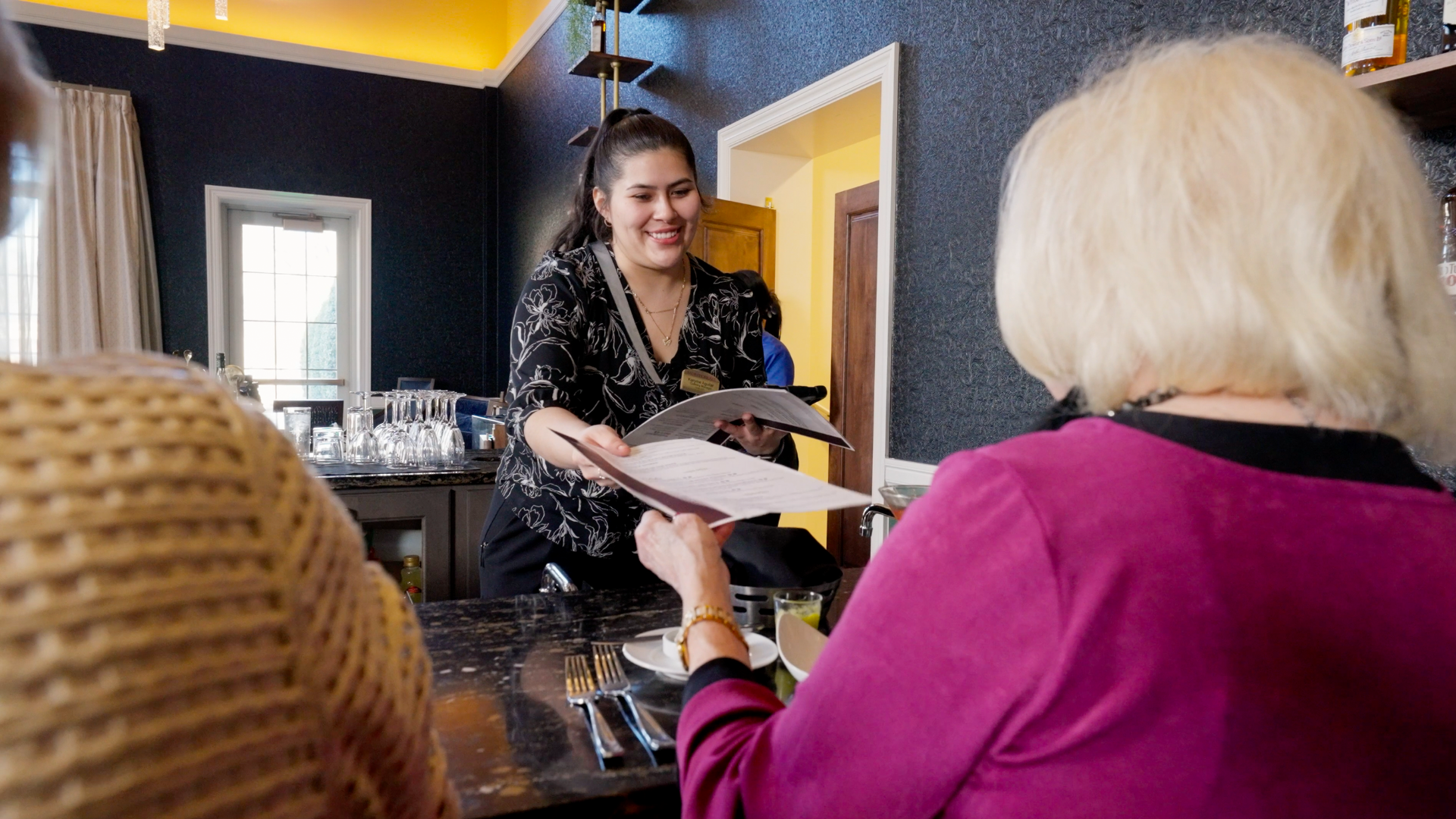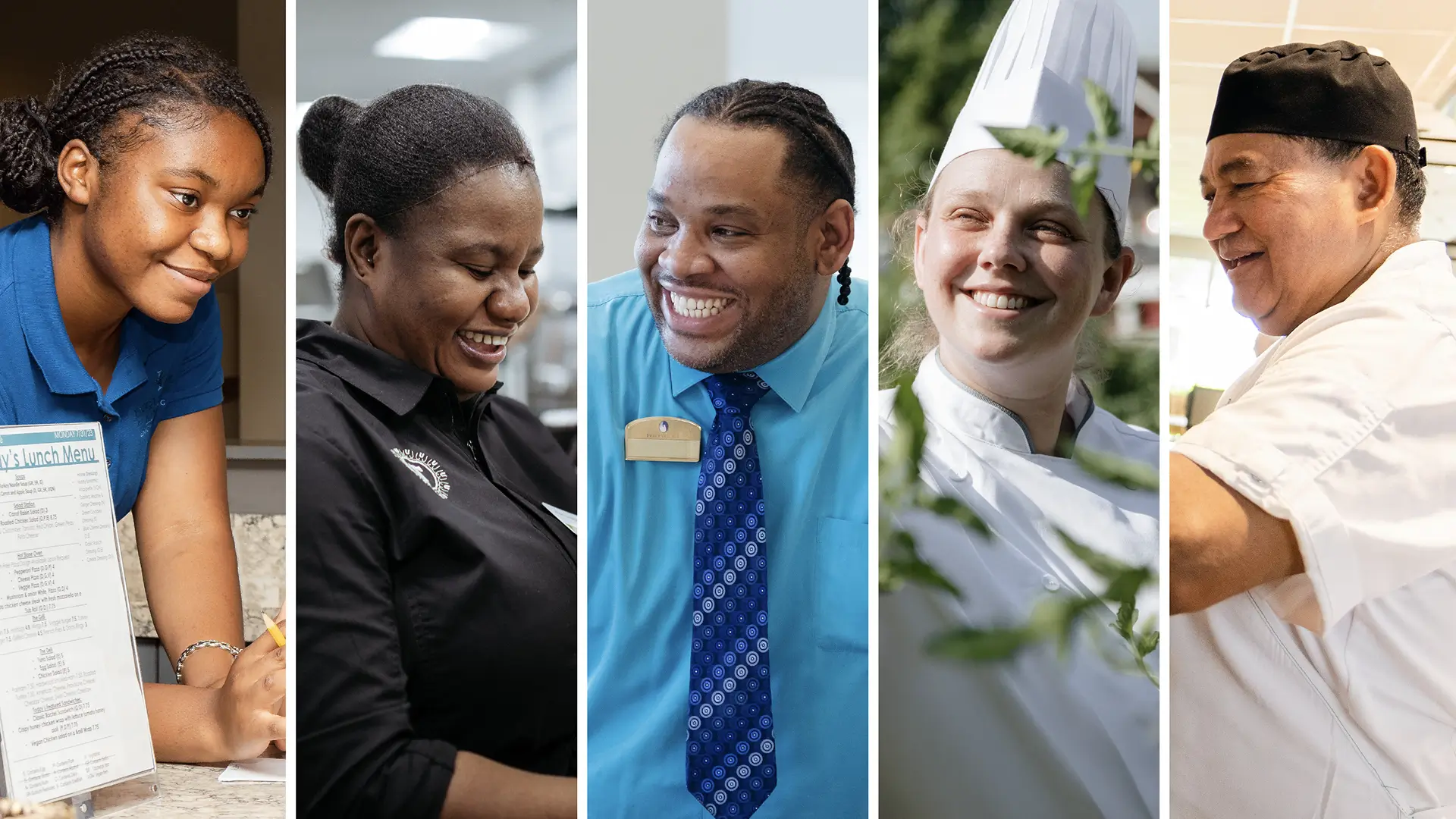As the senior living industry navigates one of the most complex workforce environments in its history, a new era that calls for innovation and adaptability has been formed. High turnover rates, generational shifts in senior living, and increasing demand for senior care are all colliding, forcing providers to rethink how they attract, retain, and support team members.
At CCL Hospitality Group, we believe the path forward begins with a deeper understanding of people: both the residents we serve and the employees who bring hospitality to life in senior living communities.
How Generational Shifts Are Reshaping the Senior Living Industry
Today’s workforce and resident populations span five generations, each with distinct values, expectations, and motivations. Understanding these generational dynamics—and the broader generational shifts in senior living—is essential, not only for driving employee engagement and recruitment, but also for building meaningful resident experiences.
Generational researchers, such as Kim Lear, offer valuable insight into how these age groups shape and influence both workforce behavior and consumer expectations:
Traditionalists (born before 1946)
This generation lived through the Great Depression, World War II, and the Korean War. They value loyalty, sacrifice, and community. Many of today’s oldest residents fall within this group, and they tend to respond to consistent service, brand loyalty, and respect for tradition.
Baby Boomers (1946-1964)
Boomers ushered in civil rights, women’s rights, and the space age. They are optimistic, resilient, and driven by purpose. Now entering or already in retirement, they view senior living not as a retreat, but as a reinvention. They want to live well, stay active, and have meaningful influence in their communities. For them, senior living should support how they want to age, not just where they age.
The focus around aging tends to center on simply staying alive, but for baby boomers, it’s more about redefining what it means to grow older. The real question is, how can we build communities that support that kind of reinvention?
Generation X (1965-1979)
Independent, entrepreneurial, and often curious and skeptical, Gen Xers are currently in leadership roles in both the workplace and family. They are the ones researching senior living for their parents and evaluating job opportunities. They expect transparency, efficiency, and authenticity. When marketing to this group—whether as decision-makers or employees—it’s essential to anticipate questions and provide honest, direct communication.
Millennials (1980-1995)
Millennials now make up the largest segment of the workforce. They are purpose-driven, collaborative, and networked. For them, careers must offer meaning—not just a paycheck. In senior living, they are drawn to organizations that promote equity, inclusion, flexibility, and well-being. They expect to be part of a culture that values their voice and supports their growth.
Providing Purpose-Driven Workplaces
Millennials and Gen Z workers are redefining what they expect from employers, and senior living providers must adapt accordingly.
A few critical strategies include:
- Fostering a mission-driven culture: When employees understand the “why” behind their work, engagement and retention follow.
- Creating growth pathways: Learning opportunities, mentorship programs, and leadership development signal long-term investment in employees.
- Personalizing onboarding and early engagement: A strong start sets the tone. When new hires feel valued from day one, they’re more likely to stay.
- Prioritizing employee voice: Listening to feedback, acting on ideas, and including staff in decision-making creates a sense of ownership.
- Investing in wellness: Holistic support: across physical, emotional, and social well-being, enhances team performance and satisfaction.
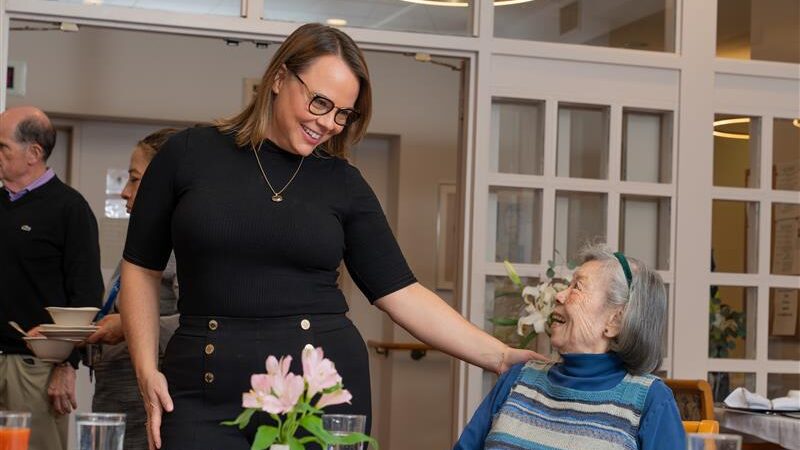
Evolving Employee Experience
Millennials and Gen Z workers are redefining what they expect from employers, and senior living providers must adapt accordingly. It requires building inclusive, empowering environments where team members feel seen, supported, and part of something bigger.
It’s not uncommon to find Baby Boomers, Gen Xers, Millennials, and Gen Z all working side by side. While these generations often have different values, work styles, and expectations, these differences shouldn’t be seen as obstacles—in fact, they can be powerful assets. Diversity strengthens culture and makes workplaces more effective, and generational diversity is no different.
The exchange of knowledge across generations creates a culture of continuous learning. Senior teammates can mentor younger colleagues in leadership and navigating complex situations, drawing from their lived experience. Meanwhile, younger team members bring fresh insights into storytelling on social media and leveraging emerging digital tools.
When we focus on a shared vision for organizational success, we create space to embrace our different paths and learn from one another along the way.
Evolving Resident Engagement
Generational insights don’t stop at the workforce. They also influence how senior living providers design resident experiences. Boomers, in particular, are looking for communities that support reinvention and independence. They’re not content with passive retirement—they want vibrant lifestyles, purpose-filled opportunities, and spaces that reflect their values.
Meanwhile, as Gen X becomes more involved in decisions about their parents’ care, they bring a high level of discernment. They expect transparency, digital access, and flexible options. Communities that anticipate these expectations will stand out in a competitive market.
Recognizing and responding to generational shifts in senior living will allow providers to deliver more tailored, impactful experiences that resonate across different age groups.
Using the Power of Connection as a Competitive Advantage
Supporting communities that prioritize both resident and employee experiences is essential to the future of senior living. True innovation will come not only through technology or design, but through empathy, cultural awareness, and meaningful connection across generations.
When environments are shaped to meet people where they are—honoring a Traditionalist resident’s need for stability or a Millennial employee’s desire for purpose—communities become stronger, more connected, and more resilient.
For senior living communities, this isn’t just a feel-good approach—it’s a competitive advantage. Cultivating connection and understanding across generations leads to higher retention, stronger relationships, and a more vibrant, future-ready community where everyone thrives.
About CCL Hospitality Group
Browse Additional Resources
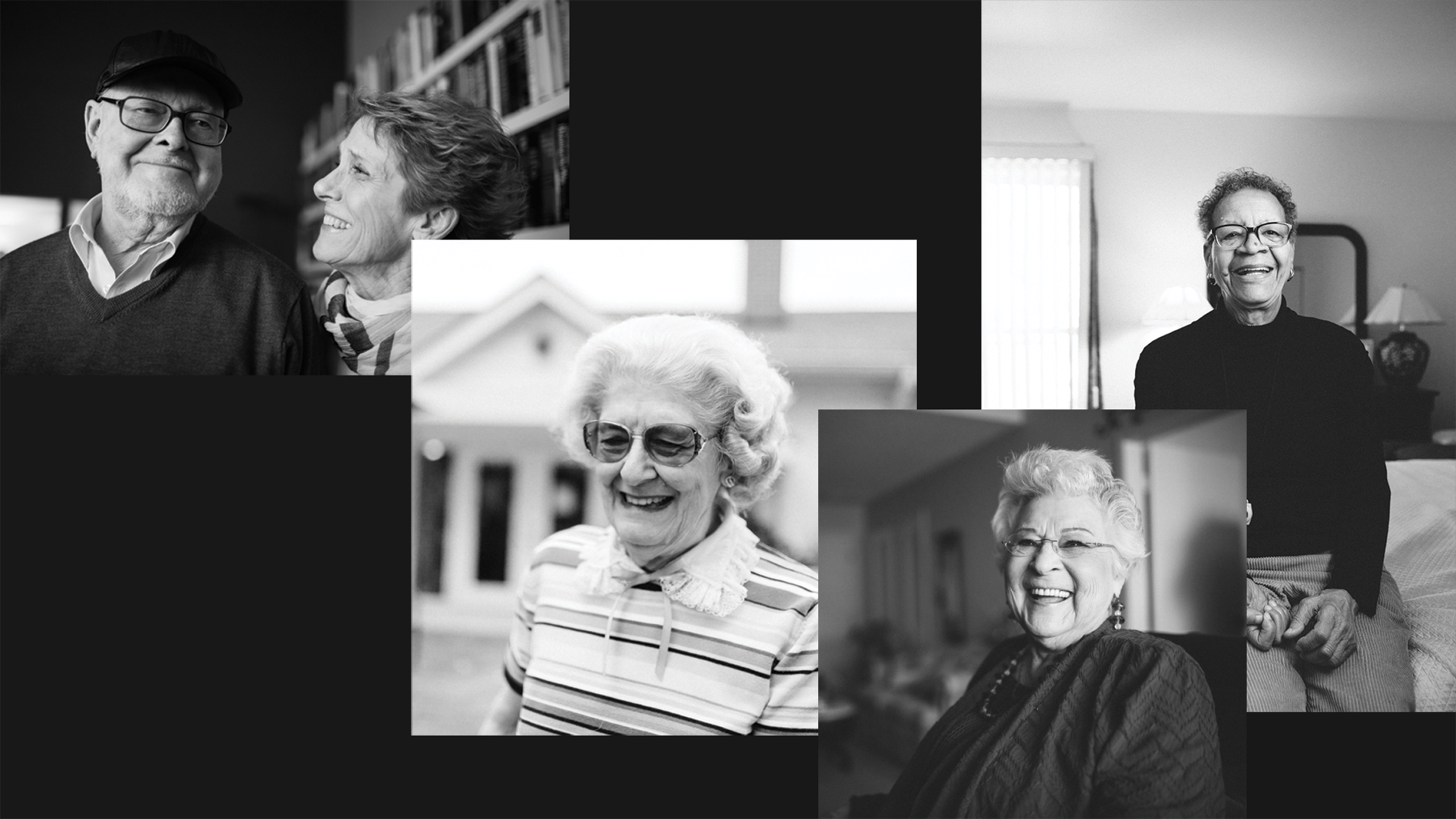
Rethinking the Senior Living Experience Without Major Investment
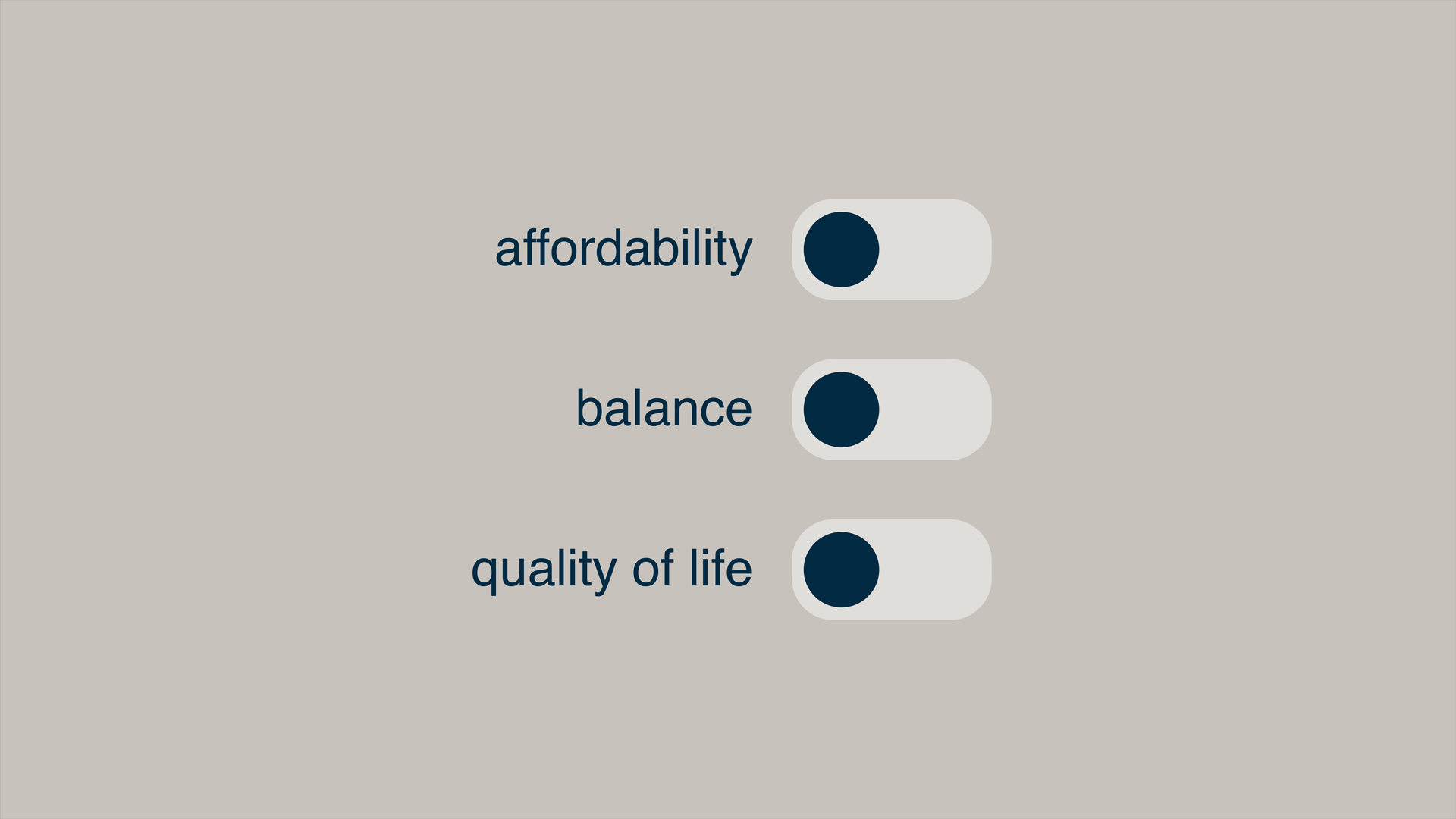
Keeping Wellbeing Impactful Without Raising Fees
